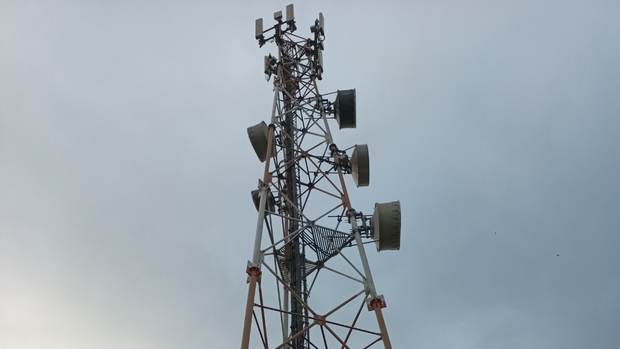While the answer for most common tower companies (towercos) beyond acquiring and leasing infrastructure to wireless carriers is by tapping into additional revenue streams such as distributed antenna systems and fiber networks, EdgePoint Philippines is looking into small cells and edge computing down the road for its locally acquired sites.

As early as 2020, a TowerXchange research showed that 56% of towercos surveyed had deployed small cells driven by the need to expand coverage and capacity. With small cells – also known as low-powered radio access nodes, carriers and towercos are able to bolster the coverage of macro cells in areas where the network is congested or hard to reach.
Meanwhile, although it’s in the early stages of adoption, edge computing services offered by towercos are aimed at providing low-latency connectivity for applications that require real-time processing and reducing network congestion.
A recent study shows that the global edge computing market is expected to grow from $3.6 billion in 2020 to $15.7 billion by 2025, at a compound annual growth rate (CAGR) of 34.1%.
“We try and create different ways to host solutions for the operators. There will be other services as 5G becomes more prevalent, one example is edge computing. Basically, when 5G is more mature, they will want to have more of the workload closer to the customer,” shared Suresh Sidhu, CEO and founder of EdgePoint Infrastructure.
Sidhu added that EdgePoint is already conducting proof of concepts with operators regarding these technologies. By staying in a position that is purely leasing the equipment to operators and carriers, he says there is a risk for towercos in becoming a price-sensitive player, which is why EdgePoint puts its focus on innovation and creating more solutions for its customer base.
“The first batch of sites that were turned over was around 1,500, now we’re close to 2,500, that’s more than 50% (growth) in the past six months. The team started with two people and now we’re at a hundred, so 50X more in the past months,” reported Vicente Araña, CFO of EdgePoint Philippines.
In April of 2022, the company officially entered the Philippine market through a ‘Sale and Leaseback’ agreement for 2,934 towers with PLDT subsidiaries Smart Communications and Digitel Mobile Philippines, Inc. (DMPI).
“We’ve also signed a lot of contracts with vendors and contractors that will help us build our sites…apart from the growth in the number of towers, we also build relationships with third parties that can help us grow the business,” he added.
Through the years, the growth of towercos has been driven by the rapid expansion of wireless networks and the increasing demand for mobile data, emerging in the early 80s as a way for wireless carriers to reduce the costs and risks associated with building their own towers, to recent years where they have expanded and diversified their businesses by entering into new areas such as small cells, distributed antenna systems, and fiber networks.
A study by ResearchAndMarkets showed that the global towerco market was valued at $42.06 billion in 2019 and is expected to grow at a compound annual growth rate (CAGR) of 13.1% from 2020 to 2027. Back in 2019, a TowerXchange report estimates a total of 1.7 million towers worldwide, 68% of which are controlled by towercos.
The towerco industry growth can be primarily attributed to the need for additional infrastructure to support the increased demand for mobile data, the requirement of wireless carriers for a cost-effective alternative to building their own towers, the consolidation of mobile network operators (MNOs), expansion into areas with demand for additional infrastructure, and diversification of their business into newer revenue streams.
“A big part of our business is being prepared. We make things easy; we take the hassle – the operational, maintenance, landlords, regulatory, etc., from the operators,” highlighted Alexander Kiel, CEO of EdgePoint Philippines.
Outside the country, EdgePoint Infrastructure is also setting its sights on expansion in Indonesia and Malaysia. Recently, the company has introduced the all-new 360˚Sustainable (360˚S) sites which will be rolled out by the end of 2023 to 20 new build-to-suit sites, including those located in the Philippines.




